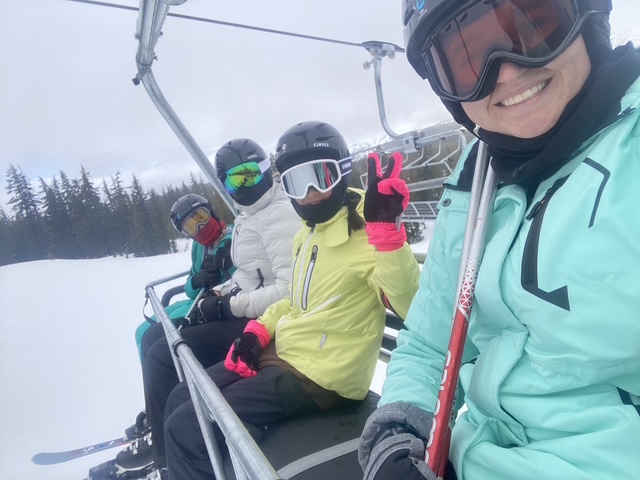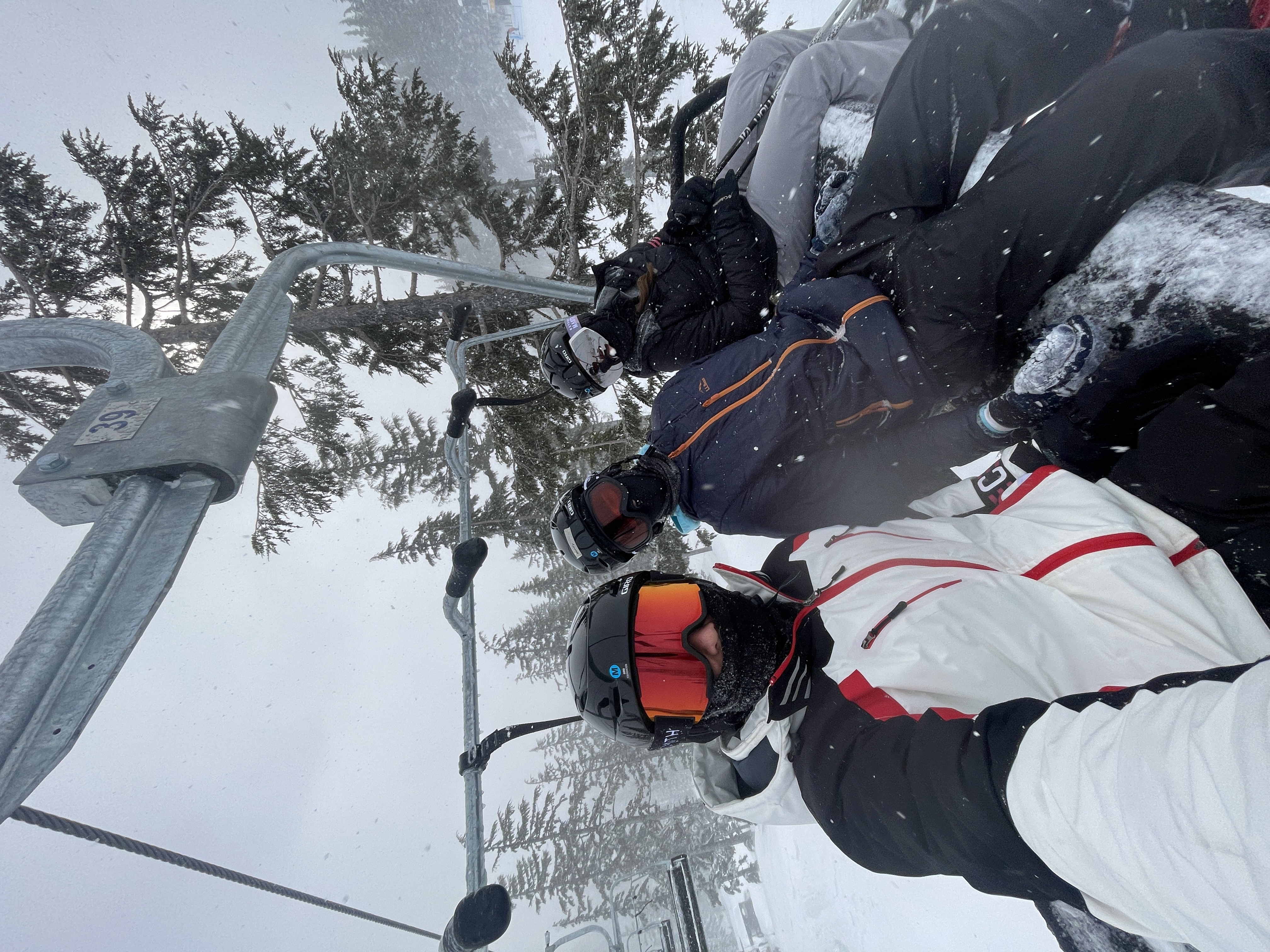
9 minute read
Planning, Organizing, Skiing, & Snowboarding
Planning, Organizing, Skiing, & Snowboarding
Form 7 students Tai Jefford and Masha Ershova teamed up to strategically plan, organize and execute a memorable three-day ski trip to Bend, OR, where eighty excited Middle and Upper School students skied and snowboarded at the Mt. Bachelor ski resort. This project required Tai and Masha to flex their skills using effective communication, leadership, and creative problem-solving as they navigated the challenges of coordinating such a large event.
Delphian Magazine: How did the planning and organizing of this project tie into your Form 7 programs?
Masha Ershova: On Form 7, students are required to apply the knowledge they gain from the Planning and Organization course [based on the administrative works of L. Ron Hubbard] to plan and organize a large student activity.
Tai Jefford: Part of the requirement is to ensure the project goes well, so not only do you have to write the plan, but you have to carry it out and come up with solutions along the way so the activity happens properly and smoothly.
DM: How does an opportunity to do a project like this come about? Did you volunteer?
ME: We volunteered to do this project last summer and then the Director of Student Activities, Ally, confirmed that we could do it.
DM: Can you walk me through everything you had to do on this project?
TJ: Well, once we were selected, we used what we learned in the Planning and Organization course to create a detailed plan—called an administrative scale—of how to accomplish the product. The administrative scale was our guide for the rest of the project to keep us on schedule and moving along as planned.
We met with Ally weekly, and then, as the trip drew nearer, we switched to daily meetings to discuss what we had accomplished on the plan and what still needed to be completed each week or day.
A big part of the plan was promoting the trip to Upper and Middle School students and getting them to sign up. The promotion included getting the students and their parents to fill out forms, sign waivers, and pay the trip fee. It included getting details like whether they snowboard or ski, how tall they are, how much they weigh, and all that sort of stuff. In the end, eighty students participated in the trip, which was more than last year.
Another big part of the project was gathering all the supplies and information. We did a big Costco shopping trip where we purchased all the snacks and small supplies for the cabins and busses. Then, we organized our purchases into crates to be distributed to each location.
We organized housing assignments and collaborated with Ally to determine the assignments for each student and staff member. Once we agreed on the assignments, we had to coordinate with the staff chaperone and student helper assigned to each cabin to get them their cabin information, food money, itinerary, etc.
On the day of the trip, we had to ensure everything went according to plan. We checked that all the supply boxes we packed were loaded onto the correct bus by the student cabin assistants, accounted for every student and staff member, and completed all the necessary preparations to be ready for departure from the school.

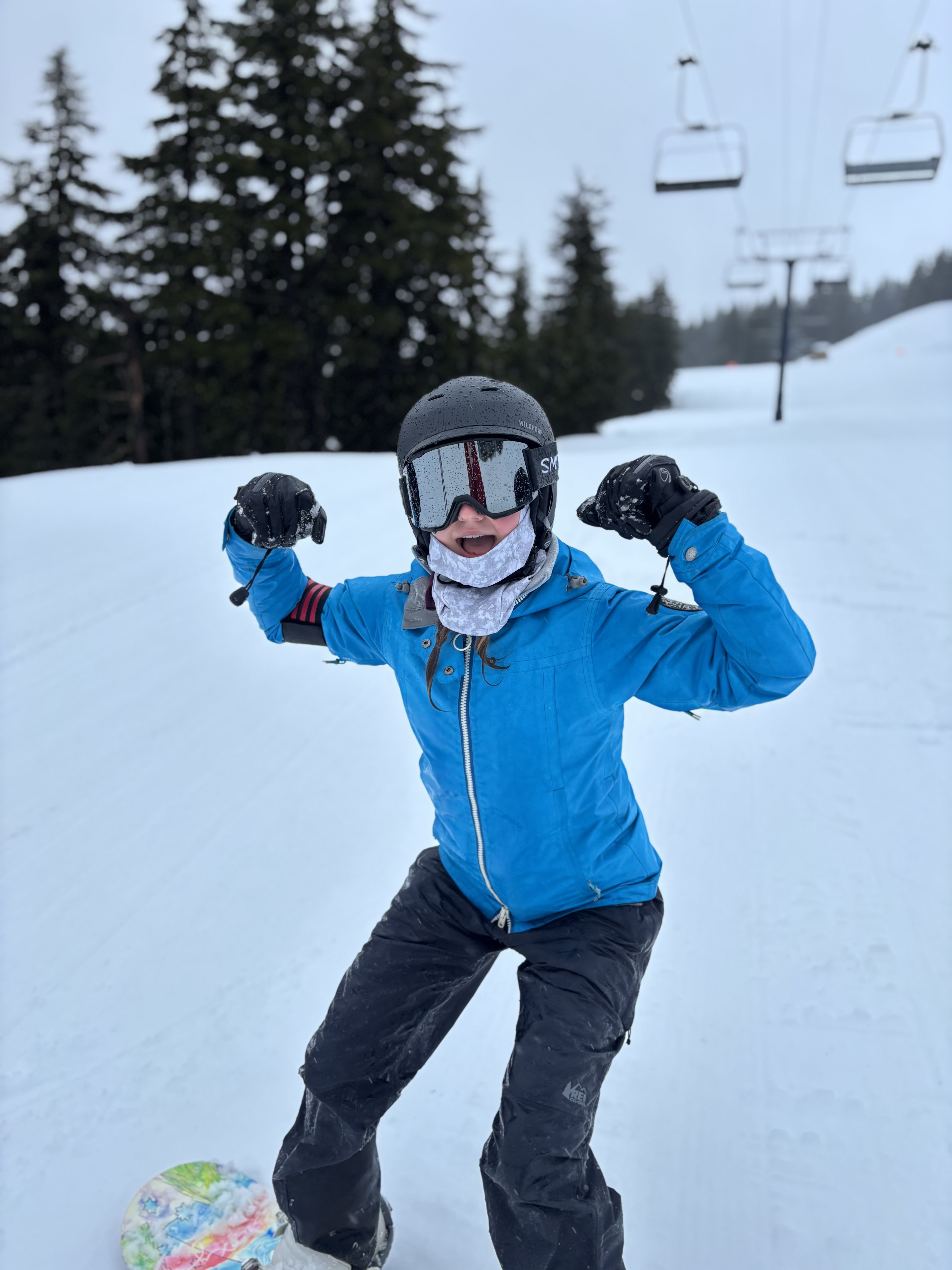
DM: Were there any challenges you ran into?
TJ: We rented thirteen cabins, and I reckon that making the housing assignments was one of the hardest, apart from getting students to sign up. It was mentally challenging because you have students who say, “I want to room with these guys,” while someone else says, “I also want to room with those guys.” And then, there are only so many beds in each house, so you’re trying to figure out how to put people with their friends while at the same time making sure they’ll have a bed to sleep in.
Before you know it, you’re just sitting there staring at a spreadsheet for an hour. It eventually started to feel like an integrity point. I had to figure out when to make a change and when to say, “No, I can’t change the assignments around.” And in the end, I heard good things, and I’m pretty confident in saying everyone who went on the trip had fun.
ME: After we had gone through organizing, I was still getting requests to change cabins until the day before we were supposed to leave. After talking it through with Ally, we just had to make a call, talk it through with the students, and let them know the assignments were set and done.
DM: Had you ever executed a real-life plan like this before this project?
TJ: Just before the trip, I started doing the new Groups and Organization courses and created multiple minor administrative scales for something I could complete within a week. Then, I did a massive one for practically the rest of my life using the same planning and organizing technology. Having done those before helped make this trip easier to plan.
ME: I also did the administrative scales required for the course in the classroom, which was helpful. However, on this project, I saw how it was helpful in a much bigger way. This project showed me how everything I studied is useful in a very practical setting. It still took a lot of work, but it was way less work than it would have been if I hadn’t used what I learned about making an administrative scale.
DM: Were there any other challenges you ran into that you had to overcome?
ME: Yes—communicating with people often, staying on top of tasks, and staying focused on actually getting things done.
There were some students I needed to talk to daily about getting their waivers and payments turned in. One student kept responding to me for two weeks, saying, “Yeah, yeah, I’ll do tonight.” Then, the next day, “Yeah, I’ll do tonight.” Then, it was the deadline, and I finally had to sit down with them and walk them through the process. I was like, “Okay, get your phone. Great! Text your parents. Great. Did they answer? No. Okay, then we’ll wait for the answer.” And so it went until the student was fully confirmed and completed all their forms.
TJ: I had a very similar thing. It brought to mind the section in the new Groups and Organization course about handling work. The idea I took from that was that when you have some work that needs to be done, don’t just say, “Okay, I’ll do that tomorrow.” Because tomorrow, you could say the same thing, “I’ll do it tomorrow,” and the work never gets done.
I saw this happening when working with students to help them sign up or get a specific waiver signed. I would go to the student and get them to sign the waiver and get it done now rather than wait. I was going to them first and asking, and they were like, “Oh, yeah, yeah, give it to me. I’ll sign it later,” and then they forgot. But then, I connected this reference and my current problem and figured out how to apply it as a solution, and everything went much faster. My “to-do” list quickly turned into a “done” list. I also use this in other areas of my life, and getting tasks done is so effortless now.
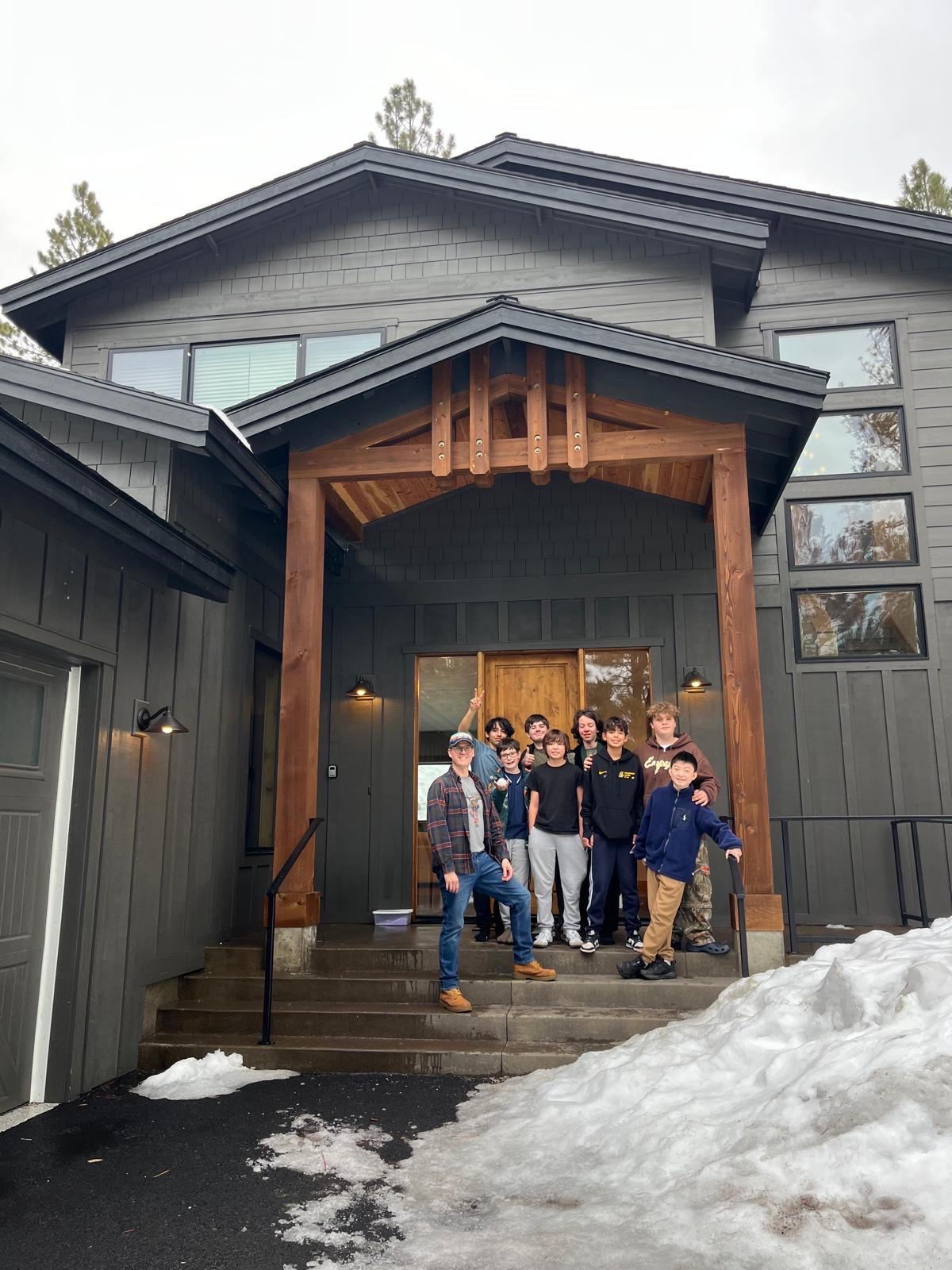

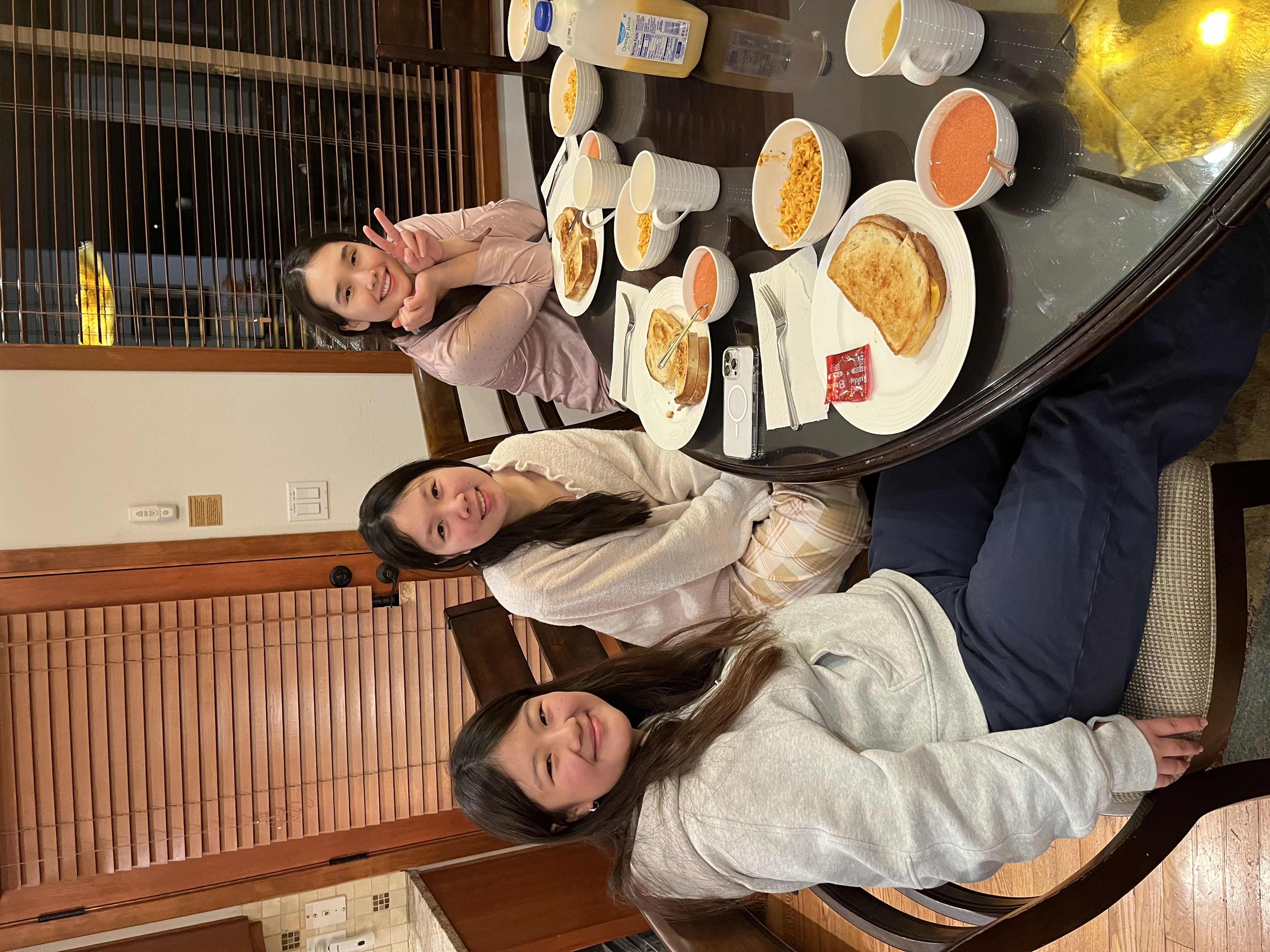
DM: How was studying the theory of planning and organizing in the classroom different from using it in the field?
TJ: I studied so much about planning and organizing in the classroom while I was doing the course. I could tell how the information could theoretically be useful and applied to life. However, having to use it in real life on a big project like this made me see how it works, how it can be helpful in a very real way and how I can use it for any other plans I have in the future.
ME: This project helped me realize that I can technically organize anything in my life—whether a small group or a huge group activity, I have a workable method to organize and plan it out. This project showed me that what I learned isn’t just theory; it’s information I can use and apply in my life to achieve my goals.
DM: What are your plans after you complete your Delphian education?
TJ: I plan to start a business related to the humanities where I can help my community.
With what I’m learning in the classroom and then doing on projects, I have a pretty good idea of how to use the knowledge to achieve my goals. The Planning and Organization course, in particular, has given me a workable way to break down big projects into the most straightforward steps to achieve my goals.
ME: I mapped out my future after Delphian on a course you do on Form 7 called Looking to the Future, Part 2. Through doing that, I decided that I would also like to open my own business. I haven’t decided what it will be, but I love dancing. I’ve been dancing since I was seven, so I’ve considered opening a dance studio.

